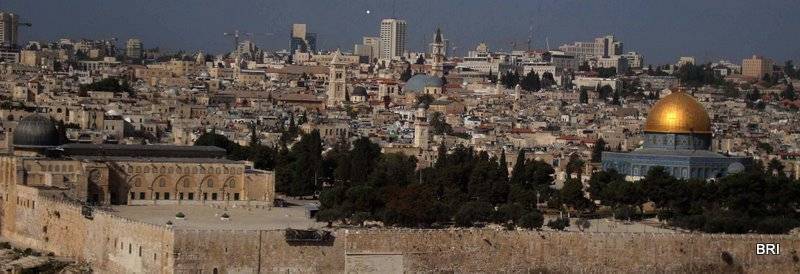READ THE BIBLE ONLINE
Rightly Dividing
the Word of Truth

BEREAN RESEARCH INSTITUTE
DOWNLOAD
FREE SEARCH SOFTWARE
God's Word
the King James Bible
Bible Studies for the Church and for Christian Ministries - BIBLE STUDY ON TOUGH ISSUES
|
|
Catholic Booklet - "Be Careful of Protestant Teachings": A Review
Doctrine Article - D.0217
SHARE THIS ARTICLE WITH YOUR FRIENDS and FOLLOW
Catholic Booklet - "Be Careful of Protestant Teachings" : A Review
I have taken time to read the Catholic booklet, Be Careful of Protestant Teachings, which was sent to me by a Catholic man whose intent was to convert me. Although he claimed to be eager to discuss the content of it, he declined any discussion upon receiving my thoughts as written below.
James,
1. I have given considerable thought to the premises of this booklet. Although many questions have come to my mind as a result, I would like to mention just a few in hopes that we could find the truth about this. (For your convenience, my questions for you to consider are written in blue.) I certainly do not wish to be wrong on such an important subject, nor would I wish you to be wrong, if that were the case either.
2. (Page 3) The booklet aims to evaluate beliefs from the perspective of sola scriptura (scriptures alone). This is a respectable approach to take (one with which I concur) in attempting to present a persuasive case. This approach, sola scriptura, would exclude tradition, history, assumptions or any other external information from the discussion, regardless of its possible veracity.
3. (Page 5) The booklet makes reference to (I Tim 1:17) and claims that God alone is immortal. It is true that God is immortal. But this verse does not say that God alone is immortal, as the booklet suggests. In the Bible, the word "mortal" is specifically used to describe man's body of flesh. (Rom 6:12; 8:11 and II Cor 4:11). But it is never used to describe his soul or spirit. Further, the teachings that our soul/spirit will continue to live after physical death (either in heaven or in hell) is clearly taught in Luke 16:23, among other places. Would you agree with me that the booklet is in error, when it misuses I Tim 1:17 to suggest that God alone is immortal when that verse doesn't claim he is the only one who is immortal?
4. (Page 6) If the booklet is correct (that to the Jews "eternal" didn't mean eternal, "everlasting" didn't mean everlasting and "for ever and ever" didn't mean for ever and ever), then God is not eternal (Deut 33:27), nor is he everlasting (Gen 21:33; Is 40:28), nor will he reign for ever and ever (Ex 15:18). These are just a few of the unconscionable conclusions to which one must come if these words do not mean what they say. Although there is much more that could be said, let's stick with the scriptural principle that physical/seen things are temporal and spiritual/unseen things (including our spirits and souls) are eternal, in the plain sense meaning of the scriptures (and sola scriptura).
5. One question, however would be: what does "forever and ever" mean regarding the punishment of those who follow the end-time world leader and his false religious partner, in Rev 14:11?
6. (Pages 15-19: End Time Judgment) My Catholic (New American) Version is not as clear as the King James Bible, but it still identifies the harlot_of_Revelation_chapter_17, the woman riding the scarlet coloured, seven-headed beast. The list below only covers a few of the symbols, but what impression do these verses give you about God's attitude towards the Catholic church?
7. (Page 27) The booklet correctly teaches, I believe, that Jesus is our Mediator. It quotes (I Tim 2:5) For there is one mediator between God and men, the man Christ Jesus. Because a mediator intervenes between conflicting parties in order to bring about reconciliation, the concept of Jesus being our mediator to reconcile us with God is clearly understood. But how would you, as a Catholic, find a place for Mary in this relationship, without contradicting this verse, when the "man" Christ Jesus means "man" and "one" mediator means "one" mediator?
8. There is certainly much more that we could discuss, but these are some of the thoughts that I had in response to the booklet you sent. Please feel free to engage me in further discussion on these matters, and I look forward to your thoughts on my questions above.
Have a great week, James !!
Mike.
[Note to file: James claimed to be too busy to engage in this discussion that he had eagerly awaited.]
| |||||||||||||||||||||||||||
|
Legal Disclaimer: Terms and Conditions
Salvation | Bible Versions | Sound Doctrine | Endtime | Other Issues | Book Reviews
Home | What We Believe | Contact Us | Audios | Videos Copyright 2006-2017 All Rights Reserved: Mike Wright - Berean Research Institute web design by Centurion Digital: websites@centuriondigital.com
|
| |||
The "Berean Research Institute" is a scripture-based, family-oriented area of cyber-space wherein men, women and children can research beliefs and doctrines that impact their assembly, ministry and/or personal lives. We encourage all to fear God and to keep his commandments by searching the scriptures daily and by being doers of the word. Many people today claim to be Christians, disciples of Jesus, but fail to continue in his word as commanded in John 8:31, and therefore are deceiving even themselves. (James1:22) The result of such deception will be exclusion from the Kingdom of God (Matt 7:21-23 and Matt 25:8-12). Not everyone ... shall enter the kingdom of heaven; but he that doeth the will of my Father which is in heaven. (Matt 7:21) If you consider yourself to be a Pentecostal, Baptist, Catholic, JW, Adventist - even a life-long one - and are convinced that you are on your way to heaven, we encourage you to consider some of the biblical doctrines that we examine in these articles and videos - and be SURE that you are on your way to heaven. That is our ultimate goal for you - that every one of you obtains eternal life!!
|
|||





